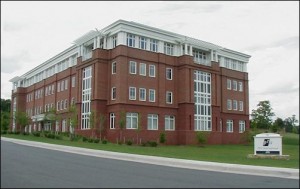by Wade Gilley
Recent news reports reveal that the governance problems at the University of Virginia continue to boil, as evidenced by accrediting issues, student protests, legislators considering the restructuring of the institution’s governing board and other news emerging both locally and nationally.
The problems recently surfacing at Virginia’s flagship university are due in part to changing global economics and a unique weakness in Virginia’s public and private higher education system. The commonwealth has an excellent public university/college system, but in the changing world of global economics one large and critical shortfall is economically challenging to Virginia in the 21st century. That shortfall is the lack of a major private research university.
North Carolina has Duke and Wake Forest, Georgia has Emory, Tennessee has Vanderbilt, and Maryland has Johns Hopkins University. These private universities win billions of dollars in competitive research grants and contracts each year in an age in which research is increasingly a key factor in economic development. Virginia does not have a major private research university, and that void may be responsible for the continuing debate about U.Va.’s future.
A recent report in the Chronicle of Higher Education on institutional success in competing for dollars from the federal government and other sources indicated that North Carolina’s institutions, both public and private, spend roughly $2.2 billion on research each year and Maryland’s universities spend $2.5 billion. In comparison, Virginia’s universities only spend about $950 million, or 40 percent of what institutions in neighboring/competing states spend.
Although $950 million is a lot of money, Virginia’s investment in research still lags dramatically behind our competitors. The difference is primarily due to the fact that North Carolina has both Wake Forest and Duke, while Maryland has Johns Hopkins.
Virginia’s research limitations have been evident for a long time, but no one has ever publicly recognized the problem, so now it is a 21st-century challenge. And one can see that challenge in the recent conflict regarding the mission of U.Va.
Virginia, perhaps subconsciously, has attempted to make up the difference by encouraging U.Va. to act like a private research university without providing the funds or the governing structure that would facilitate that transition.
There are a few simple solutions to this critical problem. First, create a partial privatization of U.Va. with a totally independent governing board, coupled with state assistance/scholarships for Virginians attending the university. This way, U.Va. would be state-supported, but not state-run, and would have both the freedom and additional resources to compete with major private universities across the country.
Second, the state needs to invest more money and resources to expand the research capabilities of all our research universities, especially U.Va. To achieve this, Virginia should offer significant and targeted incentive grants designed to dramatically increase the competitiveness of all our research universities, which is perhaps the most critical of the challenges facing the commonwealth in the new economy.
I am confident that, with freedom from excessive political oversight and encouragement to function more as a private research university, U.Va. could compete more effectively with Duke, Hopkins, Vanderbilt and — yes, over time — Harvard in the research arena. At the same time, our other major doctoral institutions could become increasingly competitive, resulting in a new and powerful economic force for Virginia in the 21st century.
Now is the time for Virginia to focus on building a larger and more competitive state higher education system, which in turn will make Virginia more competitive in the new global economy. With the coming slowdown in federal dollars gushing across the Potomac and down the bay, we need new and productive initiatives to expand Virginia’s economy.
Wade Gilley, a retired university president living in Reston, served as Virginia’s secretary of education from 1978 to 1982 and once served as chairman of the board of the Oak Ridge National Laboratory (ORNL). Contact him at jwgilley@yahoo.com. This column was published originally in the Roanoke Times.



